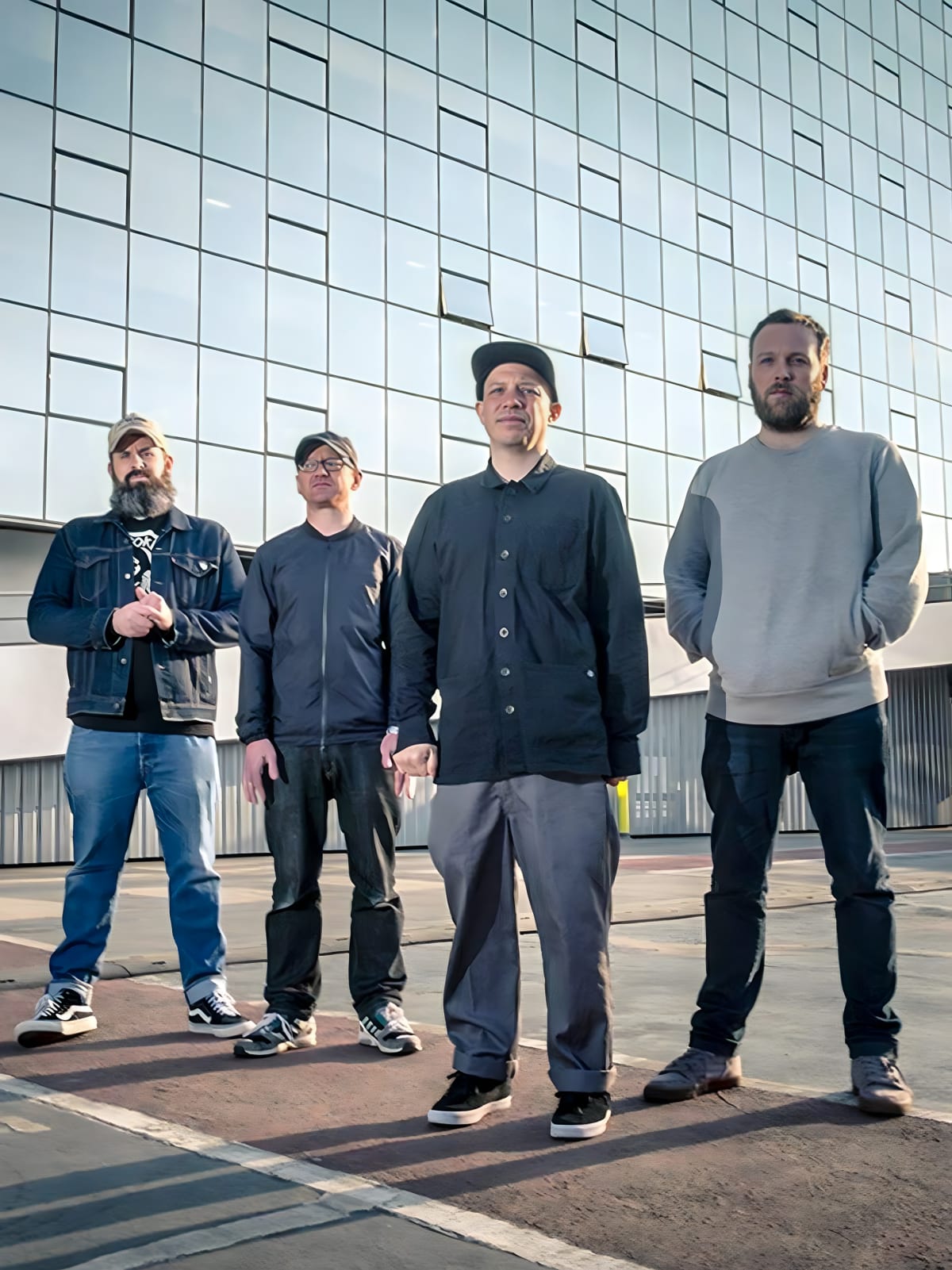
Mogwai
Thursday, Feb 19, 2026
19:00:00
, Exeter
Nestled within the historic heart of Exeter, the Great Hall stands as a beacon of live music and cultural events, its grandeur echoing with decades of unforgettable performances. More than just a concert hall, it is a vital artery in the city's cultural landscape, a place where raw energy meets refined acoustics, and where both intimate gatherings and grand spectacles find their perfect stage. Its impressive capacity and versatile layout have cemented its reputation as a premier destination for touring artists and local talent alike, drawing audiences from across the South West and beyond. The Great Hall’s enduring appeal lies not just in its impressive schedule, but in its palpable sense of occasion, making every visit an experience to cherish.
The Great Hall’s story is intricately woven with the fabric of the University of Exeter, of which it forms a part. Originally constructed as part of the university's expansion in the mid-20th century, its design was conceived with both academic and public gatherings in mind. The architectural ambition was to create a space that was both imposing and adaptable, capable of hosting large congregations, ceremonies, and, crucially, significant cultural events. Its robust construction and thoughtful layout, designed to accommodate large numbers of people efficiently, laid the groundwork for its future as a premier live music venue. While its academic roots are undeniable, the very structure of the Great Hall, with its high ceilings and broad open space, possessed an inherent potential for resonant acoustics and immersive performance that would soon be fully realised.
The transition of the Great Hall from a multi-purpose university hall to a dedicated concert venue was a gradual evolution, driven by the growing demand for quality live entertainment in Exeter and the South West. Over the years, it has hosted a remarkable array of musical genres, from rock and pop legends to classical orchestras and electronic pioneers. Its significance extends beyond individual concerts; it has played a crucial role in nurturing the local music scene, providing a platform for emerging artists and becoming a touchstone for musical discovery. The venue’s ability to attract world-renowned acts while remaining accessible to the local community has solidified its status as a cultural cornerstone, shaping the musical tastes and experiences of generations of students and residents.
The Great Hall Exeter's enduring appeal as a live music venue is intrinsically linked to its remarkable acoustic design and its capacity to foster an intimate connection between artist and audience, regardless of scale. This unique synergy, where grand performances feel surprisingly personal, is a testament to its thoughtful architecture. This has led to countless legendary nights etched into the venue's history.
Here are just a few of the iconic performances that have graced the Great Hall stage:
These performances, among many others, highlight the Great Hall's consistent ability to attract artists at various stages of their careers, from rising stars to established legends, all drawn by its reputation and the exceptional experience it offers.
The nearest train station is Exeter St Davids. From Exeter St Davids, the Great Hall is approximately a 20-30 minute walk uphill. Alternatively, taxis are readily available outside the station, or local bus services can be utilized to reach the campus.
Several local bus routes serve the University of Exeter's Streatham Campus. Services such as the Stagecoach Uni-Link (U1, U2, U3, U4) are frequent and connect various parts of the city to the campus, including stops close to the Great Hall.
If arriving by car, the Streatham Campus is well-signposted from the M5 motorway. The most convenient car park for the Great Hall is typically the Stocker Road Car Park.
The Great Hall is committed to providing an accessible experience for all its visitors. The venue is largely accessible, with the following provisions:
It is always advisable to contact the venue directly in advance of your visit to discuss any specific accessibility requirements you may have.
To ensure a smooth and enjoyable experience, please familiarise yourself with the following venue policies:
The Great Hall Exeter has a maximum capacity of approximately 2,000 people, depending on the configuration for specific events.
You can reach Great Hall Exeter via the University of Exeter's Streatham Campus using local bus services, such as the Stagecoach Uni-Link (U1, U2, U3, U4), which stop directly at or near the campus. From Exeter St Davids train station, local buses or a taxi are also options.
Yes, Great Hall Exeter offers wheelchair access, including ramps to the entrance and dedicated wheelchair spaces within the auditorium. It is advisable to book these in advance.
Doors typically open 30-60 minutes before the advertised start time of the performance. Always check your ticket or the specific event details for exact timings.
The most convenient car park is the Stocker Road Car Park (Stocker Road, Exeter EX4 4PX) located on the Streatham Campus. Please be aware that parking is subject to availability and charges, and may differ on event nights.
Location
, Exeter